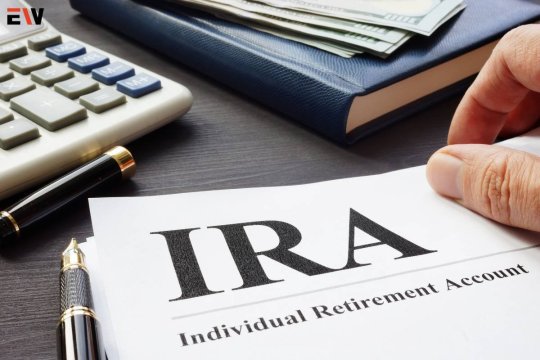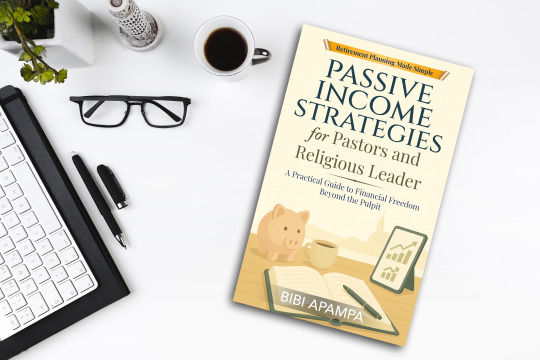#SecureRetirement
Explore tagged Tumblr posts
Text
How Douglas Eze Helps You Navigate Retirement Planning in Uncertain Times

Planning for retirement can feel hard, especially when things around us keep changing. The economy goes up and down, prices rise, and unexpected events happen. Because of this, many people worry if they will have enough money to live well after they stop working. Douglas Eze is a trusted financial expert who helps people make good plans to retire safely, no matter what happens in the world.
In this blog, you will learn how Douglas Eze helps people with retirement planning when times are not certain. We will also share some easy tips you can use to prepare for a safe retirement.
Why Is Retirement Planning Hard Today?
The world changes quickly. Prices can go up fast, the stock market can change a lot, and rules about retirement benefits can be different. This makes saving for retirement tricky. Many people fear running out of money or not having enough to enjoy their life after work.
Douglas Eze understands these problems. He helps people make plans that can change when needed. His advice is based on real goals and smart steps, not on risky ideas or quick fixes.
How Douglas Eze Helps You Plan for Retirement
1. Plans Made Just for You
Douglas Eze knows that everyone is different. Each person has their own money situation, dreams, and how much risk they can take. He talks with people to learn about their money now and what they want in the future. This way, he makes a retirement plan that fits each person’s life.
2. Having More Than One Income Source
Relying on only one type of income in retirement can be risky. Douglas tells people to have several ways to get money. This can be from pensions, social security, investments, renting out property, or even part-time work. Having many income sources means you are safer if one source stops or gets smaller.
3. Teaching Smart Ways to Invest
Investing money is important for retirement. But some investments are too risky, especially when times are unsure. Douglas teaches people to choose investments that grow slowly but safely. This helps protect their money from big market changes.
4. Managing Debts and Spending
Douglas also tells people to pay off debts before retiring. High-interest debts take a lot of money and make saving hard. He helps people make budgets so they don’t spend more than they earn. This way, they can save more and not worry about money when retired.
5. Getting Ready for Surprises
Life can bring surprises like health problems or house repairs. Douglas helps people save emergency money and get insurance to cover these costs. Planning for surprises means retirement money won’t get used up too fast.
6. Easy to Understand Advice
Douglas is good at explaining money topics in simple words. He uses examples people can understand. This helps people feel sure about their money decisions and take control of their retirement plan.
Simple Tips from Douglas Eze to Plan Your Retirement
Here are some easy tips based on Douglas’s advice:
Start Saving Early: The sooner you save, the more your money grows.
Save Regularly: Put money aside often, even if it is a small amount.
Check Your Plan Often: Life changes, so update your plan every year.
Don’t Put All Money in One Place: Spread your investments to reduce risk.
Think About Healthcare: Plan for medical costs in retirement.
Keep Learning: Stay informed about money and retirement options.
Final Thoughts
Planning for retirement may seem hard, especially when the future is unclear. But with help from Douglas Eze, you can make a plan that works for you and your goals. His advice focuses on teaching, personal plans, and safe choices. This helps you feel confident and calm about your future.
0 notes
Text

From missed RMDs to outdated beneficiaries and poor investment choices, this guide breaks down five critical missteps many Americans make with their IRAs—and how you can steer clear of them.
Read the full breakdown and stay informed and protect your hard-earned wealth.
#IRAMistakes#RetirementPlanning#FinancialSecurity#TaxTips#WealthManagement#PersonalFinance#IRA2025#SecureRetirement#InvestmentTips#AvoidPenalties#IRAGuide#USFinance#MoneyMatters#SavingsStrategy#LongTermWealth
0 notes
Text
Planning for Retirement in Kingston, Ontario: How to Build a Secure Future
Let Kingston Financial Inc. guide you through the retirement planning process. We offer expert advice and strategies to help you secure a comfortable retirement. Start planning for the future you deserve today.
#RetirementPlanning#KingstonON#SecureRetirement#FuturePlanning#FinancialAdvisor#RetirementGoals#WealthManagement#InvestmentPlanning#FinancialSecurity#SmartRetirement
0 notes
Text
Complete Checklist for Retiring Clergymen and Pastors

Retirement Planning: Complete Checklist for Retiring Clergymen and Pastors
Introduction to Retirement Planning for Clergy Members
After decades of faithful service guiding congregations through life's most significant moments, retirement represents a major transition in any pastor's journey. Yet retirement planning for clergymen and pastors comes with unique challenges and considerations that differ significantly from those in secular professions.
This comprehensive retirement planning checklist addresses the specific needs of retiring clergymen and pastors. Whether you're five years or one year from retirement, this guide will help ensure you've covered the essential elements for a financially secure and spiritually fulfilling retirement.
Understanding the Unique Retirement Landscape for Clergy
Before diving into our checklist, it's important to recognize why retirement planning for pastors differs from other professions:
Many clergymen receive housing allowances or live in church-provided housing
Clergy often have complex tax situations due to dual tax status (employed for income tax but self-employed for Social Security)
Retirement benefits may be spread across multiple denominational systems
Ministerial income is frequently below market rates for comparable education levels
The spiritual and identity transition from active ministry presents unique challenges
With these factors in mind, let's explore the essential checklist items for clergy retirement planning.
Financial Preparation: The Core of Clergy Retirement Planning
1. Assess Your Current Retirement Assets
✅ Locate and review all retirement accounts
Denominational pension funds
403(b) accounts from current and previous churches
Personal IRAs or Roth IRAs
401(k)s from any secular employment
Social Security statements and projected benefits
✅ Request current benefit statements from all sources
Contact previous ministry positions to ensure you haven't overlooked any benefits
Review beneficiary designations on all accounts
Calculate your total retirement assets
✅ Analyze any pension options
Lump sum vs. annuity choices
Survivor benefit elections
Early retirement reduction factors
Pastor Keith shares: "I discovered a small pension from a denomination I served with for just four years early in my ministry. I'd completely forgotten about it, but it added $450 monthly to my retirement income—a significant boost I nearly missed."
2. Calculate Your Retirement Income Needs
✅ Create a detailed retirement budget
Housing costs (especially if transitioning from parsonage living)
Healthcare expenses including Medicare premiums and supplements
Daily living expenses adjusted for inflation
Discretionary spending for travel, hobbies, and family
Potential long-term care needs
✅ Determine your income gap
Calculate guaranteed income (Social Security, pensions)
Estimate sustainable withdrawals from retirement savings (typically 3-4%)
Identify any shortfall requiring additional savings or income
✅ Develop a withdrawal strategy
Determine which accounts to draw from first
Understand Required Minimum Distributions (RMDs)
Plan for tax-efficient withdrawals
3. Housing Strategy for Retiring Clergymen
✅ Determine your retirement housing plan
If in church-provided housing, develop transition timeline and strategy
If purchasing, begin housing search 1-3 years before retirement
Consider downsizing options to reduce expenses and build savings
✅ Understand housing allowance rules in retirement
Determine if your denominational pension qualifies for housing allowance exclusion
Document proper housing allowance designations before retirement
Understand IRS requirements for claiming housing allowance in retirement
✅ Research retirement locations strategically
Consider proximity to family and support networks
Evaluate cost of living differences between locations
Assess accessibility to healthcare facilities
Healthcare Planning for Retiring Pastors
4. Secure Appropriate Healthcare Coverage
✅ Understand Medicare enrollment timing
Initial Enrollment Period begins 3 months before your 65th birthday
Plan for potential coverage gaps if retiring before Medicare eligibility
Assess penalties for late enrollment
✅ Select appropriate Medicare coverage
Compare Original Medicare vs. Medicare Advantage plans
Research Medicare Supplement (Medigap) policies
Understand Medicare Part D prescription coverage
✅ Investigate denominational health benefits for retirees
Some denominations offer retiree health programs or subsidies
Understand any continued coverage options through your church
Evaluate Health Savings Account (HSA) usage in retirement
5. Plan for Long-Term Care Needs
✅ Research long-term care options
Traditional long-term care insurance
Hybrid life insurance/long-term care policies
Self-funding strategies for potential care needs
✅ Create advance healthcare directives
Living will
Healthcare power of attorney
HIPAA authorization forms
✅ Discuss care preferences with family members
Your desires for various care scenarios
Financial resources available for care
Potential caregiving responsibilities
Legal and Estate Planning for Clergy Retirement
6. Complete Essential Legal Documents
✅ Create or update your will
Ensure current beneficiary designations
Consider special bequests to ministry organizations
Name guardians for minor children if applicable
✅ Establish appropriate powers of attorney
Financial power of attorney
Healthcare power of attorney
Consider digital asset provisions
✅ Review estate planning strategies
Explore trusts if appropriate for your situation
Understand estate tax implications
Consider charitable giving strategies as part of estate plan
7. Organize Important Information
✅ Create a comprehensive information file
Account numbers and access information
Insurance policies
Property deeds and titles
Contact information for financial and legal advisors
✅ Develop a legacy letter
Share your values and life lessons
Express wishes for personal belongings
Document your life story and ministry impact
Identity Transition: The Non-Financial Side of Clergy Retirement
8. Plan for Purposeful Engagement
✅ Define boundaries with your former congregation
Establish clear successor transition plans
Develop communication protocols with church leadership
Consider geographical distance if necessary
✅ Explore meaningful activities and ministry opportunities
Part-time or interim ministry roles
Volunteer opportunities
Mentoring younger pastors
Writing or teaching ministries
✅ Develop new routines and structure
Regular physical activities
Social connections beyond church settings
Spiritual practices for this new season
Pastor Martha reflects: "After 40 years of structured ministry, the open calendar of retirement was surprisingly challenging. Creating intentional routines for prayer, exercise, and service helped me find new rhythms that kept me grounded."
9. Address Spiritual and Emotional Transitions
✅ Find a new church home if relocating
Plan visits to potential churches before relocation
Discuss expectations about your role with pastoral staff
Find the balance between engagement and interference
✅ Prepare for identity shifts
Process the transition from public ministry role
Develop regular spiritual practices appropriate for this season
Consider working with a retirement coach or spiritual director
✅ Nurture key relationships
Invest in family connections
Maintain ministerial friendships
Develop new social connections
Action Steps: Implementing Your Clergy Retirement Plan
10. Create Your Retirement Timeline
✅ 5 Years Before Retirement
Conduct comprehensive retirement planning assessment
Accelerate debt reduction
Begin transition conversations with church leadership
Maximize retirement contributions
✅ 3 Years Before Retirement
Solidify housing plans
Research healthcare options in detail
Update all estate planning documents
Begin developing post-retirement activity plans
✅ 1 Year Before Retirement
Finalize succession planning with church
Apply for Medicare if eligible
Schedule final medical appointments before insurance changes
Create detailed month-by-month retirement transition plan
✅ 6 Months Before Retirement
Begin transitioning responsibilities
Confirm pension and benefit elections
Organize personal belongings and ministry resources
Set up retirement account withdrawal mechanisms
11. Assemble Your Professional Support Team
✅ Engage financial professionals familiar with clergy finances
Fee-only financial advisor with clergy experience
CPA who understands ministerial tax situations
Estate planning attorney
✅ Connect with clergy retirement networks
Denominational retirement groups
Retired ministers associations
Online communities for retiring pastors
✅ Consider specialized retirement coaching
Ministry transition consultants
Retirement lifestyle coaches
Spiritual directors for this new season
Conclusion: Embracing Your Retirement Journey
Retirement planning for clergymen and pastors involves careful attention to both financial preparation and personal transition. By working through this comprehensive checklist, you can approach this new season with confidence, knowing you've addressed the key aspects of this significant life change.
Remember that retirement represents not an end to ministry, but a transition to new forms of service and impact. With proper planning, this season can become one of the most fulfilling chapters of your life and ministry journey.
Would you like personalized guidance on implementing this retirement planning checklist for your specific situation as a pastor or clergyman? Visit RetirementPlanningForPastors.com for resources specifically designed for ministers preparing for retirement.
About the Author
Bibi Apampa, "The Retirement Queen," specializes in building retirement wealth and financial planning for ministers and church leaders. With over 20 years of experience helping pastors create financially secure retirements, Bibi understands the unique challenges facing those in ministry. Through her work at RetirementPlanningForPastors.com, she has guided hundreds of pastors through effective retirement planning and secure transitions. For customized retirement planning assistance specifically for pastors and clergymen, visit www.RetirementPlanningForPastors.com today.
#retireyoungretirerich#financialadvisor#financialgrowth#retirementplanning#retireearly#financialeducation#retirementplan#retirementqueen#retirementsavings#bibiapampa#churchleadership#estateplanning#financialfreedom#ministers#passiveincome#pastors#religiousleaders#retirementcoaching#secureretirement#theretirementqueen#wealthbuilding#retirementplanningpastors
0 notes
Text







#NPS#RetirementPlanning#InvestEarly#WealthGrowth#SecureFuture#FinancialFreedom#GoldenBulls#SmartInvesting#GrowYourMoney#RetirementSavings#NPSBenefits#SmartMoneyMoves#LongTermInvestment#SecureRetirement#InvestmentGoals#FuturePlanning#RetireRich#NPSSavings#GoldenBullsFinance#WealthManagement#MoneyMatters#FinancialServiesinPune#Goldenbulls
0 notes
Text
How to open an NPS account?
Have you recently opened an account with the National Pension System (NPS) but found it not working? Don’t worry, you’re not alone. Many NPS customers face this problem because their accounts have been frozen. But the good news is that it’s easier than you think to unfreeze your NPS account. read more

#NPSAccount#NationalPensionSystem#NPS#RetirementSavings#PensionScheme#InvestInNPS#NPSRegistration#FinancialPlanning#NPSForFuture#NPSBenefits#NPSInvestments#PensionFund#SecureRetirement
0 notes
Text
Retirement Planning: Aligning Your Aspirations with a Secure Future

At Obclaton, we understand that retirement planning is not just about saving for the future—it's about creating a future that reflects your unique goals and aspirations. The process can feel daunting, with numerous options and decisions to make. However, with the right strategy and expert guidance, it can become an empowering journey toward a retirement that is not only financially secure but also personally fulfilling.
Retirement is often seen as a time for relaxation and pursuing hobbies, but it’s also a time for achieving long-held dreams. Whether it's traveling the world, starting a new business, or spending more time with family, your retirement should reflect your desires, not just your financial situation. This is where personalized planning becomes essential.
At Obclaton, our user-friendly online platform allows you to take control of your retirement planning. We provide a seamless experience that lets you create a strategy tailored to your unique needs and goals. Through easy-to-understand tools, you can set clear objectives, track your progress, and receive continuous support as you approach your retirement date. This isn't just about building a nest egg; it's about crafting a lifestyle that aligns with your passions and values.
We believe that the key to successful retirement planning is not just in the numbers, but in the personal touch. Our team of experts offers specialized guidance to help you navigate complex financial decisions and ensure your strategy is as unique as you are. We’re here to answer your questions, adjust plans as your needs evolve, and ensure you feel confident in every step.
By providing you with tailored strategies, ongoing advice, and a platform designed for ease of use, Obclaton empowers you to plan your retirement with clarity and confidence. It’s time to build not just a future, but a future that’s perfectly aligned with your aspirations—one step at a time.
1 note
·
View note
Text
𝐒𝐞𝐜𝐮𝐫𝐞 𝐘𝐨𝐮𝐫 𝐑𝐞𝐭𝐢𝐫𝐞𝐦𝐞𝐧𝐭, 𝐋𝐢𝐯𝐞 𝐘𝐨𝐮𝐫 𝐃𝐫𝐞𝐚𝐦𝐬!
Your golden years deserve to be stress-free and full of joy! Plan your retirement with VSRK Capital and enjoy lifelong financial independence. Whether it’s traveling the world, fulfilling family commitments, or simply cherishing every moment—you can achieve it all. 💼 High-Interest Plans 📊 Customized Options 🔒 100% Safe & Secure Start planning today and make your dreams a reality. 𝐂𝐚𝐥𝐥 𝐮𝐬 𝐭𝐨 𝐤𝐧𝐨𝐰 𝐦𝐨𝐫𝐞: +𝟗𝟏 𝟗𝟕𝟏𝟏𝟒𝟎𝟒𝟎𝟔𝟗
For more details visit us at: https://vsrkcapital.com/

#retirementplanning#FinancialFreedom#PlanYourFuture#LifelongIncome#SecureRetirement#RetireSmart#FinancialPlanning#DreamItPlanItAchieveIt#VSRKCapital#investsmart
1 note
·
View note
Text
youtube
InvestTalk - 10-10-2022 – What Is 'Life-Stage' Investing?
Proper financial multitasking can assist you in establishing a comfortable retirement.
0 notes
Text

Fuel a Secure Retirement with IUL's Cash Value Growth
Retire with confidence and a steady income stream thanks to Indexed Universal Life (IUL) insurance. The cash value within your IUL policy can be accessed to supplement your retirement income, providing an additional source of funds just like that winning play that secures the victory.
Why IUL Empowers Your Retirement Strategy:

Retire with the Financial Freedom You Deserve. Schedule a FREE consultation today to explore how IUL can help you design a winning retirement strategy. Spots are limited, so secure yours now!
Click here to learn more: https://wealthprotectorsinc.com/
#SecureRetirement#IULInsurance#CashValueGrowth#RetireWithConfidence#FinancialFreedom#IncomeSupplement#RetirementStrategy#TaxEfficiency#FlexibilityAndControl#WinningRetirement
0 notes
Text
Sam Higginbotham Explains the Role of Financial Advisors in Retirement Planning

Retirement planning can be a daunting task, filled with complex decisions and long-term considerations. That’s where a financial advisor comes in, providing expertise and guidance to help you navigate your financial future. Sam Higginbotham, a seasoned financial advisor, shares valuable insights into the crucial role advisors play in retirement planning.
Understanding Your Financial Goals
The first step in effective retirement planning is understanding your financial goals. A financial advisor like Sam helps you identify what you want to achieve in retirement. Whether it's traveling the world, supporting your grandchildren's education, or simply maintaining a comfortable lifestyle, an advisor works with you to clarify these objectives.
Creating a Personalized Retirement Plan
Once your goals are clear, a financial advisor develops a personalized retirement plan. This plan takes into account your current financial situation, expected retirement age, and desired lifestyle. Sam emphasizes the importance of a tailored approach, as no two individuals have the same financial circumstances or aspirations.
Managing Investments Wisely
Investments play a significant role in building a retirement fund. Financial advisors like Sam Higginbotham provide expert advice on where to invest your money to maximize returns while managing risk. They help you diversify your portfolio, selecting a mix of stocks, bonds, and other assets that align with your risk tolerance and time horizon.
Navigating Tax Implications
Taxes can significantly impact your retirement savings. A financial advisor helps you understand and navigate the tax implications of various retirement accounts, such as 401(k)s, IRAs, and Roth IRAs. Sam points out that strategic tax planning can save you a substantial amount of money in the long run, ensuring more funds are available for your retirement.
Adjusting to Life Changes
Life is unpredictable, and your retirement plan needs to be flexible enough to accommodate changes. Whether it's a job loss, a health issue, or a significant market downturn, financial advisors like Sam help you adjust your plan accordingly. They provide the support and advice needed to stay on track despite unexpected events.
Ensuring Sustainable Withdrawal Rates
One of the critical aspects of retirement planning is determining a sustainable withdrawal rate. This is the rate at which you can withdraw funds from your retirement accounts without depleting your savings too soon. Sam explains that a financial advisor calculates this rate based on various factors, including life expectancy, inflation, and investment returns, ensuring you can enjoy a comfortable retirement without financial worries.
Providing Peace of Mind
Ultimately, the role of a financial advisor extends beyond numbers and investments. They provide peace of mind, knowing that a professional is overseeing your financial future. Sam highlights that this reassurance allows you to focus on enjoying your retirement, rather than stressing over financial details.
Regular Reviews and Updates
Retirement planning isn’t a one-time task; it requires regular reviews and updates. A financial advisor conducts periodic reviews of your retirement plan to ensure it remains aligned with your goals and circumstances. Sam Higginbotham stresses the importance of these reviews in adapting to changes in the economy, tax laws, and your personal situation.
Conclusion
The role of a financial advisor in retirement planning is multifaceted and indispensable. From setting clear financial goals and creating a personalized plan to managing investments and navigating tax implications, advisors like Sam Higginbotham provide invaluable expertise and support. Their guidance ensures that you can approach retirement with confidence, knowing that your financial future is in good hands.
Planning for retirement may seem overwhelming, but with the help of a skilled financial advisor, you can achieve your retirement dreams and enjoy the peace of mind that comes with knowing you are well-prepared for the future.
#RetirementPlanning#FinancialAdvisor#RetirementGoals#InvestmentTips#FinancialFreedom#TaxPlanning#RetirementSavings#WealthManagement#FinancialSecurity#PersonalFinance#RetirementStrategy#SmartInvesting#RetirementLife#FinancialGuidance#PlanForRetirement#FuturePlanning#SecureRetirement#InvestmentAdvice#FinancialWellness#RetirementAdvice
0 notes
Text
Passive Income: What It Is and Ideas for 2024

In today's dynamic economic landscape, the concept of earning passive income has become increasingly appealing. While the traditional nine-to-five job remains a cornerstone of financial stability for many, the allure of generating income passively, where money works for you instead of the other way around, has captured the imagination of millions.
In this blog post, we delve into the essence of passive income, explore its significance in 2024, and provide innovative ideas to help you embark on your journey toward financial freedom.
What is Passive Income and Explain its importance in 2024?
Passive income refers to earnings derived from sources requiring minimal to no effort to maintain. Unlike active income, which demands ongoing participation (such as a regular job), passive income streams can continue to generate revenue even when you're not actively involved.
This type of income offers flexibility, scalability, and the potential for long-term wealth accumulation. The year 2024 presents a unique landscape for passive income seekers. With advancements in technology, changes in consumer behavior, and evolving market trends, new opportunities emerge for individuals to create diverse streams of passive income.
Moreover, the aftermath of global events like the COVID-19 pandemic has underscored the importance of financial resilience, making passive income more relevant than ever.
Passive income can come from various sources, including:
1. Investments: Income generated from investments such as stocks, bonds, mutual funds, and real estate properties.
2. Royalties: Income earned from intellectual property rights, such as royalties from books, music, patents, or trademarks.
3. Business Ownership: Income generated from owning and operating a business like Truly Passive that does not require active involvement in day-to-day operations, such as rental properties or a profitable online business.
4. Affiliate Marketing: Income earned by promoting and selling products or services for other companies or individuals, usually through affiliate programs.
5. Digital Products: Income generated from selling digital products such as e-books, online courses, software, or digital downloads.
Importance of Generating Passive Income in 2024:
1. Financial Stability:
In an increasingly volatile economic environment, having multiple streams of passive income can provide a buffer against financial uncertainties. Diversifying income sources reduces reliance on a single source of income, making individuals more resilient to economic downturns, job loss, or unexpected expenses.
2. Flexibility and Freedom:
Passive income allows individuals to break free from the constraints of traditional employment and achieve greater flexibility and freedom in how they earn a living. By generating income passively, individuals can have more control over their time, allowing them to pursue other interests, spend time with family, or travel without sacrificing their financial security.
3. Wealth Accumulation:
Passive income streams have the potential to accumulate wealth over time, thanks to the power of compounding and the ability to reinvest earnings. By consistently reinvesting passive income into income-generating assets, individuals can accelerate wealth accumulation and achieve long-term financial goals, such as retirement or financial independence.
4. Adaptability to Technological Advancements:
Technological advancements continue to reshape industries and create new opportunities for passive income generation. From the rise of digital platforms and e-commerce to advancements in automation and artificial intelligence, individuals can leverage technology to create innovative passive income streams that capitalize on emerging trends and consumer behaviors.
5. Rising Cost of Living:
With the cost of living steadily increasing in many parts of the world, passive income can help individuals supplement their primary income and maintain their standard of living. Whether it's to cover essential expenses, save for the future, or enjoy a higher quality of life, passive income provides a valuable source of additional income to meet financial needs.
Passive income will play a crucial role in 2024 as individuals seek financial stability, flexibility, and long-term wealth accumulation. By diversifying income sources, embracing technological advancements, and harnessing the power of passive income, individuals can achieve greater financial security and independence in the years to come.
Ideas for Generating Passive Income in 2024:
1. Investing in Dividend Stocks:
Dividend-paying stocks can be a lucrative avenue for passive income. By investing in reputable companies with a history of consistent dividend payments, you can enjoy regular income without actively managing your investments.
2. Real Estate Crowdfunding:
Participating in real estate crowdfunding platforms allows you to invest in properties without the hassle of property management. Platforms like Fundrise and RealtyMogul enable you to pool resources with other investors to access lucrative real estate opportunities.
3. Creating Digital Products:
In the digital age, creating and selling digital products such as e-books, online courses, or software can be an excellent way to generate passive income. Once you've developed the product, you can continue to earn revenue through sales without additional effort.
4. Peer-to-Peer Lending:
Peer-to-peer lending platforms connect borrowers with individual investors, providing an opportunity to earn interest on funds lent out. While it carries some risk, diversifying your investments across multiple loans can mitigate potential losses.
5. Building a YouTube Channel or Blog:
Monetizing content creation through platforms like YouTube or blogging can yield passive income through ad revenue, affiliate marketing, or sponsored content. Consistently producing high-quality content in a niche market can attract a loyal audience and steady income over time.
6. Robo-Advisors and Automated Investing:
Robo-advisors offer automated investment management services, making it easy for individuals to invest in diversified portfolios tailored to their risk tolerance and financial goals. With minimal effort, you can passively grow your wealth over time.
7. Renting Out Assets:
Whether it's renting out a spare room on Airbnb, leasing out equipment, or even renting out your car through platforms like Turo, leveraging idle assets can provide a steady stream of passive income.
8. Affiliate Marketing:
Partnering with companies to promote their products or services through affiliate marketing can be a lucrative source of passive income. By earning a commission for every sale or lead generated through your unique affiliate link, you can monetize your online presence effectively.
The Final Wrap-Up:
As we navigate the complexities of the modern economy, harnessing the power of passive income has become an increasingly vital aspect of financial planning. Whether you're looking to supplement your existing income, achieve financial independence, or simply diversify your revenue streams, the possibilities for generating passive income in 2024 are abundant.
Take charge of your retirement planning advice journey with expert guidance from Trulypassive.com. Our platform offers tailored financial planning for retirement, ensuring you're equipped with the strategies and insights needed to achieve your long-term goals. Start planning for a secure future now!
By exploring innovative ideas, embracing technological advancements, and adopting a proactive mindset, you can embark on a journey toward financial freedom and unlock the full potential of passive income in your life. Discover the secrets to unlocking true passive income potential with Truly Passive– where financial freedom meets innovative opportunities.
#RetirementPlanning#FinancialFreedom#SecureFuture#PlanAhead#RetirementGoals#FinancialIndependence#RetirementSavings#WealthManagement#FuturePlanning#SecureRetirement#InvestForRetirement#FinancialPlanning
1 note
·
View note
Text
💡 Thinking about diversifying your retirement savings? A Gold IRA lets you hold physical precious metals in a tax-advantaged account. This guide explains how they work, their benefits for retirees, and key IRS rules to know.
🔍 Learn about: ✔️ Types of Gold IRAs (Traditional/Roth/SEP) ✔️ Approved metals & storage requirements ✔️ Tax advantages & potential pitfalls
#GoldIRA#RetirementPlanning#PreciousMetals#Investing#WealthProtection#FinancialFreedom#RetirementSavings#GoldInvestment#SelfDirectedIRA#Diversification#InflationHedge#RetirementTips#PersonalFinance#TaxAdvantaged#IRS#RetirementAccounts#GoldAndSilver#SecureRetirement#FinancialPlanning#RetirementGoals
0 notes
Text
Secure Your Golden Years: Top Strategies for Building Reliable Retirement Income Sources

Ah, retirement. A time to finally relax, travel the world, and pursue your passions. But this idyllic picture requires careful planning, particularly when it comes to securing a reliable stream of income to support your desired lifestyle. Social Security alone might not be enough to cover all your expenses. So, how do you build robust retirement income sources?
This blog dives deep into various retirement income sources, helping you explore options and craft a personalized strategy for a secure and fulfilling retirement.
Understanding Your Retirement Needs
The first step is to understand your retirement needs. Consider your desired lifestyle – will you travel extensively, downsize your living situation, or pursue hobbies that require significant financial investment? Estimate your monthly expenses and factor in potential healthcare costs, which tend to rise with age. Once you have a clear picture of your needs, you can start exploring different income sources to bridge the gap between your expenses and Social Security benefits.
Traditional Retirement Income Sources
1. Social Security
Social Security provides a foundation for most retirees. The exact benefit amount depends on your lifetime earnings and retirement age. You can estimate your benefits using the Social Security Administration’s online tool (https://www.ssa.gov/OACT/quickcalc/).
2. Pensions
While less common nowadays, traditional pensions provide a guaranteed monthly income for life after retirement. If you’re fortunate enough to have a pension plan through your employer, factor this into your retirement income calculations.
Building Your Nest Egg: Savings and Investments
A key strategy for a secure retirement is building a nest egg through savings and investments. Here are some popular options:
1. Employer-sponsored retirement plans:
Many employers offer 401(k) plans, where you contribute pre-tax dollars, and some may even match your contributions. Take full advantage of these plans to maximize your retirement savings and benefit from employer matching programs.
2. Individual Retirement Accounts (IRAs)

IRAs offer tax advantages for retirement savings. Traditional IRAs allow pre-tax contributions with tax-deferred growth, while Roth IRAs offer tax-free withdrawals in retirement if you meet eligibility requirements.
3. Investment accounts
Consider investing in a diversified portfolio of stocks, bonds, and mutual funds to grow your retirement savings. The ideal asset allocation depends on your risk tolerance, time horizon, and investment goals.
Additional Retirement Income Sources
Beyond traditional sources, explore these options for generating additional income in retirement:
1. Part-time work
Consider working part-time in retirement to supplement your income and stay engaged. This could be a flexible job you enjoy or a way to leverage your skills and experience.
2. Annuities
These insurance products provide a guaranteed stream of income in retirement in exchange for a lump sum investment or premium payments. There are different types of annuities, so carefully research and choose one that aligns with your needs.
3. Rental income

Owning rental properties can be a source of passive income in retirement. However, it also comes with responsibilities like managing property upkeep and finding tenants.
4. Reverse mortgages
These allow homeowners 62 and older to access a portion of their home equity as a stream of income or a lump sum while continuing to live in the home. Carefully consider the implications of reverse mortgages as they can impact your heirs��� inheritance.
Planning for a Secure Retirement
Here are some additional tips to secure your golden years:
1. Start saving early
The power of compound interest is significant. The earlier you start saving, the more time your money has to grow.
2. Develop a budget

Create a realistic retirement budget and track your spending habits to identify areas to adjust if necessary.
3. Review your plan regularly
Your retirement needs and financial situation might change over time. Regularly review your plan and adjust your strategies as needed.
4. Seek professional financial guidance
A financial advisor can help you create a personalized retirement plan based on your goals and risk tolerance.
Conclusion
Building secure retirement income sources takes planning and proactive management. By exploring different income sources, diversifying your investments, and starting early, you can create a financial foundation that allows you to enjoy your golden years without financial worries. Remember, retirement should be a time of relaxation and fulfillment. By taking charge of your financial future now, you can ensure a secure and happy retirement.
#retirementplanning#financialfreedom#securefuture#retirementincome#financialplanning#SecureRetirement#planforthefuture#RetirementGoals#financialsecurity
0 notes
Text
Retirement Planning for Pastors : Biblical Principles of Wealth Management

Pastoral Retirement Planning : Biblical Principles of Wealth Management
Introduction: Aligning Pastoral Retirement with Biblical Financial Wisdom
Throughout decades of ministry, pastors devote their lives to shepherding others through both spiritual heights and valleys. Yet when it comes to preparing for their own retirement years, many ministers find themselves navigating unfamiliar terrain with limited resources. The statistics are sobering: according to a recent study by the National Association of Evangelicals, nearly 30% of pastors have less than $10,000 saved for retirement, while more than half express significant concern about their financial readiness for their post-ministry years.
However, Scripture provides timeless wisdom that can guide pastoral retirement planning and wealth management. By applying biblical financial principles to retirement preparation, ministers can develop strategies that honor both prudent stewardship and kingdom priorities.
This guide explores how pastors can integrate biblical principles of wealth management into effective retirement planning strategies. Whether you're early in your ministry journey or approaching retirement within the next decade, these insights will help you align your financial decisions with scriptural wisdom.
The Biblical Foundation for Pastoral Retirement Planning
Stewardship Principles in Clergy Retirement Preparation
The concept of stewardship—managing resources that ultimately belong to God—forms the cornerstone of biblical wealth management. In Matthew 25:14-30, Jesus tells the Parable of the Talents, illustrating that God entrusts us with resources and expects faithful management.
For pastors planning retirement, this principle reminds us that retirement preparation isn't about hoarding wealth, but about wisely managing the resources God has provided. Just as the faithful servants in the parable invested and multiplied what was entrusted to them, ministers should develop and implement strategies to grow their retirement resources.
Pastor Raymond reflects: "For years, I mistakenly thought retirement planning was somehow showing a lack of faith in God's provision. I later realized that good stewardship actually requires thoughtful planning for future needs, just as Joseph stored grain during the seven years of plenty."
Balancing Faith and Planning in Ministerial Retirement Strategies
Scripture teaches both dependence on God's provision and the wisdom of planning ahead. Proverbs 6:6-8 highlights the example of the ant, who "stores its provisions in summer and gathers its food at harvest." This balance between faith and planning creates the framework for biblical retirement preparation.
Jesus himself taught, "Suppose one of you wants to build a tower. Won't you first sit down and estimate the cost to see if you have enough money to complete it?" (Luke 14:28). This principle of counting the cost applies directly to retirement planning for pastors—assessing needs, developing strategies, and taking intentional steps toward financial readiness.
Biblical Wealth Management Strategies for Pastor Retirement
Avoiding Debt: A Biblical Approach to Pastoral Financial Freedom
Scripture consistently cautions against the burden of debt. Proverbs 22:7 warns that "the borrower is slave to the lender." For pastors approaching retirement, eliminating debt becomes a critical priority in retirement planning.
Consider these biblical approaches to debt reduction:
Prioritize debt repayment according to interest rates, focusing first on high-interest consumer debt
Develop an accelerated mortgage payoff plan to enter retirement without housing debt
Avoid taking on new debt in the pre-retirement years
Consider debt consolidation if it genuinely reduces interest rates and repayment timelines
Pastor Marcus shares: "When I realized I had just eight years until retirement but still carried $32,000 in debt, I committed to a radical debt elimination plan. By cutting expenses and applying biblical principles of contentment, we became debt-free three years later, dramatically changing our retirement outlook."
Generosity as Part of Clergy Retirement and Estate Planning
Throughout Scripture, generosity stands as a hallmark of godly financial management. For retiring pastors, planned giving should remain an integral part of retirement and estate strategies.
2 Corinthians 9:6-7 reminds us, "Whoever sows sparingly will also reap sparingly, and whoever sows generously will also reap generously. Each of you should give what you have decided in your heart to give, not reluctantly or under compulsion, for God loves a cheerful giver."
Consider these approaches for incorporating generosity into pastoral retirement planning:
Charitable Gift Annuities that provide retirement income while supporting ministry
Donor-Advised Funds allowing tax-advantaged giving throughout retirement
Legacy giving through estate planning, designating portions of retirement assets to ministry
Qualified Charitable Distributions from retirement accounts once RMDs begin
The biblical principle of generosity dovetails beautifully with tax-advantaged giving strategies that can simultaneously support ministry and provide retirement benefits.
Diversification: Biblical Wisdom for Ministerial Retirement Investments
Ecclesiastes 11:2 advises, "Invest in seven ventures, yes, in eight; you do not know what disaster may come upon the land." This ancient wisdom aligns perfectly with modern investment principles of diversification.
For pastors managing retirement investments, diversification might include:
Asset allocation across different investment categories (stocks, bonds, real estate)
Various retirement vehicles (403(b), IRAs, Roth accounts)
Multiple income streams in retirement (pension, investments, part-time ministry)
Geographic diversification of investments across domestic and international markets
By following this biblical principle, retiring ministers can reduce risk while positioning themselves for long-term financial stability.
Practical Application: Biblical Financial Planning for Retiring Pastors
Contentment and Simplicity in Pastoral Retirement Lifestyle Planning
Paul writes in Philippians 4:11-12, "I have learned to be content whatever the circumstances. I know what it is to be in need, and I know what it is to have plenty." This principle of contentment offers profound guidance for retirement lifestyle planning.
By embracing biblical simplicity, pastors can:
Reduce pre-retirement expenses to accelerate savings
Design a retirement lifestyle that requires less income
Find fulfillment in relationships and ministry rather than material consumption
Create margin for generosity and unexpected needs
Pastor Sharon notes: "After decades of living modestly on a pastoral salary, my husband and I found we didn't need to dramatically increase our lifestyle in retirement. Our contentment with simple pleasures allowed our modest retirement savings to be completely adequate."
Diligence in Retirement Account Management for Ministers
Proverbs repeatedly praises diligence and warns against laziness. This principle applies directly to retirement planning—regularly reviewing investments, understanding options, and making informed decisions.
For clergy retirement planning, diligence includes:
Regular reviews of retirement account performance and fees
Staying informed about changes to retirement account rules
Adjusting investment allocations as retirement approaches
Understanding distribution requirements and tax implications
Maximizing contributions during peak earning years
This diligence honors the biblical call to be faithful with what God has entrusted to us, including our retirement resources.
Overcoming Common Obstacles in Pastoral Retirement Planning
Addressing Late Starts in Ministerial Retirement Preparation
Many pastors delay retirement planning due to low compensation, focus on immediate ministry needs, or assumptions about denominational provisions. The biblical principle from Proverbs 13:16—"Every prudent man acts with knowledge"—encourages us to assess our situation realistically and take appropriate action.
For those with a late start to retirement planning:
Maximize catch-up contributions available to those over 50
Consider delaying retirement to extend saving years and increase Social Security benefits
Develop additional skills that could generate income in semi-retirement
Evaluate housing options that might reduce retirement living costs
Consult with a financial advisor familiar with clergy financial situations
Pastor David shares: "At 52, I realized my retirement preparation was minimal. Rather than despair, I worked with a financial advisor to develop a 15-year catch-up plan. By maximizing every opportunity—increased savings, housing adjustments, and developing consulting skills—I turned a concerning situation into a workable plan."
Navigating Housing Transitions in Pastoral Retirement Planning
Many ministers live in parsonages throughout their careers, creating unique housing challenges in retirement. The biblical principle of wisdom from James 1:5 encourages us to "ask God, who gives generously," as we seek guidance for these important decisions.
For pastoral housing transitions:
Begin planning 5-10 years before retirement if transitioning from church-provided housing
Consider geographic flexibility to find affordable housing markets
Explore creative options like co-housing with family or downsizing
Understand how housing allowance benefits may continue into retirement
Evaluate whether renting or owning best serves your retirement situation
Biblical Guidance for Retirement Income and Distribution
Preserving Principal: The Wisdom of Joseph in Pastoral Retirement Planning
Genesis 41 recounts how Joseph stored grain during seven abundant years to prepare for seven years of famine. This biblical example illustrates the wisdom of preserving principal while living on income—a strategy directly applicable to retirement distribution planning.
For retirement income planning, consider:
Sustainable withdrawal rates that preserve principal (typically 3-4% annually)
Strategic use of guaranteed income sources like Social Security and pensions
Sequence of withdrawals from different account types to optimize tax efficiency
Building an emergency fund to avoid withdrawals during market downturns
Creating a buffer asset that provides income during volatile periods
Inheritance Planning: Biblical Principles for Pastoral Estate Management
Proverbs 13:22 observes that "A good person leaves an inheritance for their children's children." This principle speaks to thoughtful estate planning as part of overall retirement preparation.
For pastors developing estate plans:
Create or update your will, ensuring it reflects current wishes
Consider the spiritual implications of inheritance decisions
Explore trust options that align with your values and intentions
Discuss legacy planning openly with family members
Balance family provisions with charitable legacy giving
By thoughtfully addressing estate planning, pastors can ensure their lifetime of stewardship continues through intentional legacy planning.
Seeking Wisdom: Professional Guidance for Pastoral Retirement Planning
Finding Godly Counsel for Ministerial Retirement Strategies
Proverbs 15:22 reminds us, "Plans fail for lack of counsel, but with many advisers they succeed." This biblical principle encourages pastors to seek qualified financial guidance for retirement planning.
Consider seeking advice from:
Financial advisors familiar with clergy tax situations and denominational benefits
Retirement specialists at your denominational pension board
Estate planning attorneys who understand charitable giving strategies
Tax professionals experienced with ministerial tax returns and housing allowances
Other retired pastors who have successfully navigated this transition
The National Association of Evangelical's Financial Health initiative (NAE.org/financial-health) offers resources specifically for pastoral financial planning.
Conclusion: Faithful Stewardship in the Retirement Season
Pastoral retirement planning built on biblical wealth management principles represents faithful stewardship of the resources God has provided throughout your ministry journey. By applying these timeless truths—stewardship, planning, diversification, contentment, generosity, and wisdom—you can approach retirement with confidence and peace.
Remember that retirement doesn't end your ministry—it simply transitions it into new expressions. Proper financial preparation creates the freedom to continue serving in ways that align with your calling, gifts, and season of life.
Whether you're decades from retirement or making final preparations, implementing these biblical principles will strengthen your financial foundation and glorify God through faithful resource management.
For personalized guidance on applying biblical financial principles to your specific retirement situation, visit RetirementPlanningForPastors.com. Our resources specifically address the unique challenges facing ministers planning for retirement.
About the Author
Bibi Apampa, "The Retirement Queen," is a renowned financial advisor specializing in retirement planning for faith leaders and ministers. With over two decades of experience helping pastors transition from active ministry to financially secure retirement, Bibi has become the trusted voice in ministerial financial planning. She holds certifications in financial planning, retirement wealth coaching, and retirement income planning.
Through her work at RetirementPlanningForPastors.com, Bibi has helped hundreds of pastors implement biblical wealth management principles while creating sustainable retirement plans. Her passion lies in ensuring that those who have dedicated their lives to spiritual service can enjoy financial peace in their retirement years.
For personalized retirement planning assistance specifically tailored to the unique needs of pastors and ministers, visit www.RetirementPlanningForPastors.com today.
#estateplanning#financialfreedom#ministers#passiveincome#pastors#religiousleaders#retirementcoaching#retirementplanning#secureretirement#theretirementqueen#wealthbuilding#retirementplanningpastors#FaithAndFinance#PastorWealth#KingdomEntrepreneurship#retirementplan#retireyoungretirerich#retirementqueen#financialeducation#retirementsavings#bibiapampa#financialgrowth#financialadvisor#retireearly
0 notes
Text
youtube
#RetirementPlanning#FinancialFreedom#RetirementGoals#SecureRetirement#InvestingForRetirement#RetirementSavings#EarlyRetirement#RetirementIncome#RetirementAdvice#RetirementStrategies#RetirementJourney#RetirementInvestments#RetirementLife#RetirementMindset#RetirementPreparation#RetireWell#SmartRetirement#RetirementSecurity#RetirementDreams#PlanYourRetirement#Youtube
1 note
·
View note